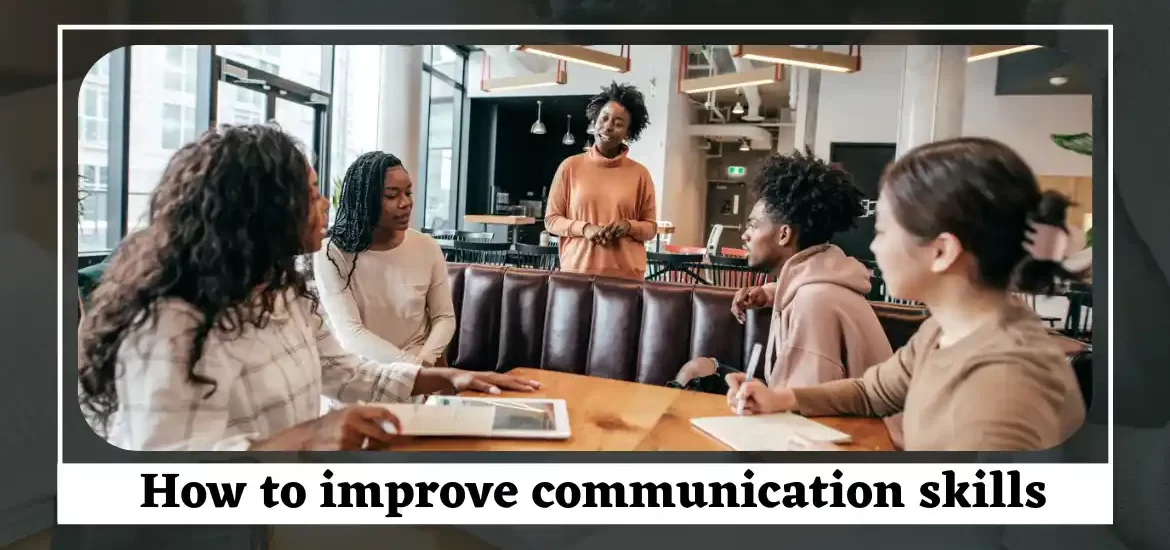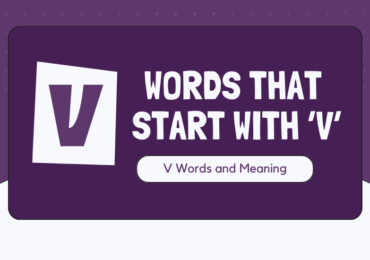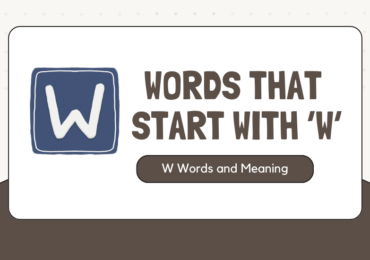Communication is essential for success in both our personal and professional lives. It allows us to connect with others, share our ideas, and build relationships. However, communication is not always easy. It takes time and effort to develop good communication skills. Improving your communication skills takes time and effort, but it is a worthwhile investment. Good communication skills can help you in all areas of your life, from your personal relationships to your professional career.
There are many different aspects of communication, including verbal communication, nonverbal communication, and active listening. Verbal communication is the use of words to express our ideas and thoughts. Nonverbal communication is the use of body language, facial expressions, and gestures to communicate. Active listening is the process of paying attention to what the other person is saying, both verbally and nonverbally.
1. Be an active listener
Active listening is a communication skill that involves paying attention to what the other person is saying, both verbally and nonverbally. It also involves understanding the speaker's point of view and responding in a way that shows you have been listening. Active listening is important because it helps you build better relationships, resolve conflicts, and get what you want. It also helps you learn more about the other person and their perspective.
- Pay attention to the speaker's words. This means listening for the literal meaning of what they are saying, as well as the implied meaning.
- Pay attention to the speaker's body language. This can tell you a lot about how they are feeling and what they are thinking.
- Don't interrupt. Let the speaker finish what they have to say before you respond.
- Ask clarifying questions. This shows that you are paying attention and that you want to understand what the speaker is saying.
- Reflect back what the speaker has said. This helps to ensure that you have understood them correctly.
- Avoid distractions. This means putting away your phone, closing your laptop, and making eye contact with the speaker.
- Be patient. It takes time and practice to become an active listener.
When you show that you are paying attention and that you care about what the other person is saying, they are more likely to trust you and feel comfortable with you. It can help you resolve conflict more effectively. When you are able to listen to the other person's point of view and understand their perspective, you are more likely to find a solution that works for everyone involved. It can help you learn more about the world around you. When you are an active listener, you are open to new ideas and perspectives. This can help you grow as a person and become more well-rounded.
2. Be clear and concise
Being clear and concise in your writing is important for a number of reasons. It helps your audience understand your message quickly and easily, it makes your writing more engaging, and it can help you save time and space. You also avoid wasting your audience's time and making them feel frustrated.
Being clear and concise is a skill that takes time and practice to develop. However, it is a skill that is worth the effort. By following these tips, you can improve your communication skills and become a more effective communicator.
- Choose your words carefully. Use simple, everyday language that your audience will understand. Avoid jargon and technical terms.
- Get to the point quickly. Don't waste your audience' time with unnecessary information.
- Use active voice instead of passive voice. Active voice is more direct and easier to understand.
- Break up your text into short paragraphs. This will make your writing easier to read and scan.
- Use headings and subheadings. This will help your audience quickly find the information they are looking for.
- Proofread carefully. This will help you catch any errors in grammar or spelling.
- Be specific. Don't use vague language. Instead, be specific and provide details so that your audience can visualize what you are talking about.
- Organize your thoughts. Before you start writing, take some time to organize your thoughts. This will help you write more clearly and concisely.
- Eliminate unnecessary words. Read your writing carefully and eliminate any words that are unnecessary or redundant.
- Proofread your work. Before you submit your writing, take some time to proofread it for errors.
Your speaking will be easier to understand. When your speaking is clear, your audience will be able to understand your message without having to speak it multiple times. Your writing will be more persuasive. When your speaking is clear and concise, it is more likely to persuade your audience to take action. Your writing will be more memorable. When your speaking is clear and concise, it is more likely to stay in your audience minds.
3. Be aware of your body language
Body language is the nonverbal communication that we use to express ourselves. It includes our facial expressions, eye contact, posture, gestures, and even our tone of voice. Body language is often more powerful than our words. It can communicate our emotions, our intentions, and our level of interest. It can also send messages that we are not aware of.
For example, if you are sitting with your arms crossed and your legs crossed, you are sending the message that you are closed off and not interested. If you are fidgeting or avoiding eye contact, you are sending the message that you are nervous or uncomfortable.
- Pay attention to your facial expressions. What do your eyes, eyebrows, and mouth say?
- Make eye contact. This shows that you are engaged and interested in the conversation.
- Maintain good posture. This shows that you are confident and relaxed.
- Use gestures sparingly. Too many gestures can be distracting.
- Be aware of your tone of voice. Your tone can convey a lot of emotion.
If you are not sure how to interpret someone's body language, it is always best to ask. You can say something like, "I'm not sure what your body language is saying. Can you help me understand?". Being aware of your body language is an important part of effective communication. By paying attention to your nonverbal cues, you can send the right messages and connect with others more effectively.
If you want to improve your body language skills, one of the best things you can do is practice. Pay attention to your body language in different situations and see how it affects others. You can also get feedback from friends, family, or a communication coach.
4. Be respectful
Respect is one of the most important qualities in communication. When we are respectful, we show that we value the other person's thoughts, feelings, and opinions. We also show that we are willing to listen to them and consider their point of view. Being respectful in communication is essential for building strong relationships and resolving conflict. It also helps to create a more positive and productive work environment.
- Use polite language. Avoid using insults, name-calling, or other disrespectful language.
- Listen attentively. Don't interrupt the other person or talk over them.
- Avoid making assumptions. Don't assume that you know what the other person is thinking or feeling.
- Be open-minded. Be willing to listen to the other person's point of view, even if you disagree with it.
- Agree to disagree. It's okay to disagree with someone, as long as you do it respectfully.
Builds trust and rapport : When you are respectful, it shows that you value the other person and their opinions. This can help to build trust and rapport, which are essential for effective communication.
Helps to resolve conflict. :When you are respectful, it is easier to find common ground and reach a resolution.
Creates a more positive environment : When you are respectful, it creates a more positive and productive environment for communication. This can lead to better decision-making and problem-solving.
Makes you a better communicator : When you are respectful, it shows that you are a good listener and that you are willing to consider other perspectives. This can make you a better communicator overall.
If you want to be a more respectful communicator, one of the best things you can do is practice. Pay attention to your own communication style and see where you can be more respectful. You can also get feedback from friends, family, or a communication coach.
5. Tips that can help you improve your communication skills
Take a communication class or workshop : Taking a communication class or workshop is a great way to improve your communication skills. There are many different types of communication classes and workshops available, so you can find one that fits your needs and interests.
Communication classes and workshops can teach you new skills and techniques that you can use to improve your communication. For example, you might learn how to give a better presentation, write more effectively, or listen more actively. Communication classes and workshops are often taught by experts in the field. This means that you can get feedback from people who know what they are talking about.
These classes and workshops often give you the opportunity to practice your skills in a safe environment. It's can help you to build confidence and improve your skills over time. Communication classes and workshops can be a great way to meet other people who are interested in improving their communication skills. This can be a great way to make new friends and build relationships.
When you are looking for a communication class or workshop, be sure to read the reviews to get an idea of what other students have thought of the class or workshop. You can also contact the instructor to ask questions. Taking a communication class or workshop is a great way to improve your communication skills and become a more effective communicator. So what are you waiting for? Start looking for a communication class or workshop today!
Read books and articles about communication : It is a great way to learn more about the subject and improve your communication skills. There are many great books and articles available, so you can find one that fits your interests and learning style. Reading books and articles about communication can help you expand your knowledge of the subject. This can help you to become a more well-rounded communicator.
Books and articles about communication can teach you new skills and techniques that you can use to improve your communication. For example, you might learn how to give a better presentation, write more effectively, or listen more actively. Those are often written by experts in the field. This means that you can get insights from people who know what they are talking about.
Watch videos of people communicating effectively : It is a great way to learn more about the subject and improve your own communication skills. There are many great videos available, so you can find one that fits your interests and learning style. If you are interested in learning about a particular aspect of communication, such as public speaking or negotiation, you can search for videos on that topic. If you know someone who is a good communicator, you can watch videos of them speaking or interacting with others.
TED Talks are a great source of videos on a variety of topics, including communication. Interviews are a great way to see how people communicate in a natural setting. Speeches are another great way to see how people communicate effectively. Take notes on the techniques that the people in the video use. You can then try these techniques yourself to see how they work for you.
Be willing to make mistakes : It is important to be willing to make mistakes. Mistakes are a natural part of learning and growing. Everyone makes mistakes, even the most successful people in the world. The important thing is to learn from your mistakes and not let them discourage you.
- You learn from your mistakes. When you make a mistake, you have the opportunity to learn from it and improve your skills.
- You become more resilient. The more you make mistakes, the more resilient you become. You learn to bounce back from setbacks and keep going.
- You become more creative. When you are not afraid to make mistakes, you are more likely to take risks and try new things. This can lead to new and innovative ideas.
- You become more confident. When you learn from your mistakes, you gain confidence in your abilities. You know that you can handle whatever comes your way.
- Don't be afraid to fail. Failure is a part of life. It is important to not let fear of failure hold you back from taking risks and trying new things.
- Be open to feedback. When you make a mistake, be open to feedback from others. This can help you learn from your mistakes and improve your skills.
- Don't dwell on your mistakes. It is important to learn from your mistakes, but don't dwell on them. Focus on moving forward and doing better next time.
- Celebrate your successes. When you succeed, take the time to celebrate. This will help you build confidence and motivation to keep learning and growing.
Improving your communication skills takes time and effort, but it is worth it. By following the tips in this blog post, you can improve your communication skills and achieve better outcomes in your personal and professional life. The tips in this blog post are a great place to start, but remember that communication is a skill that takes time and practice to develop. So don't give up, keep practicing, and you will eventually see improvement.









